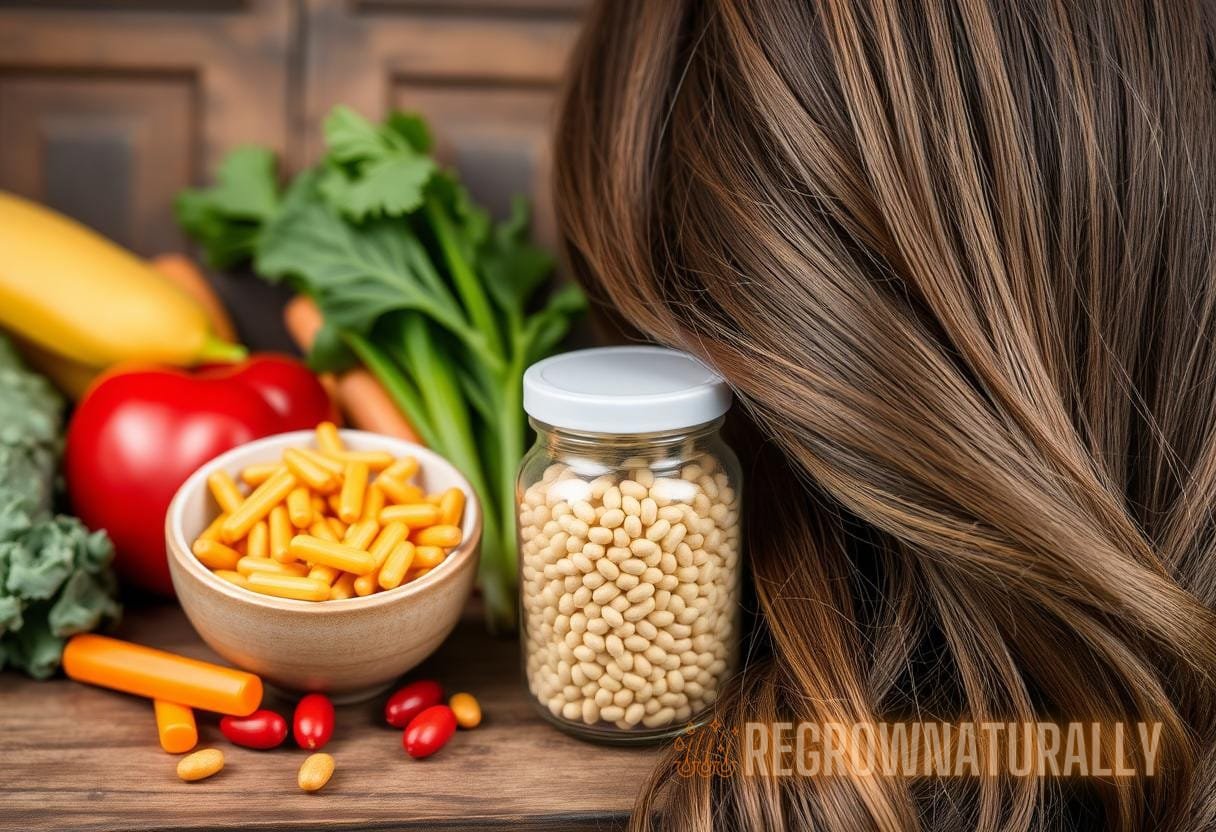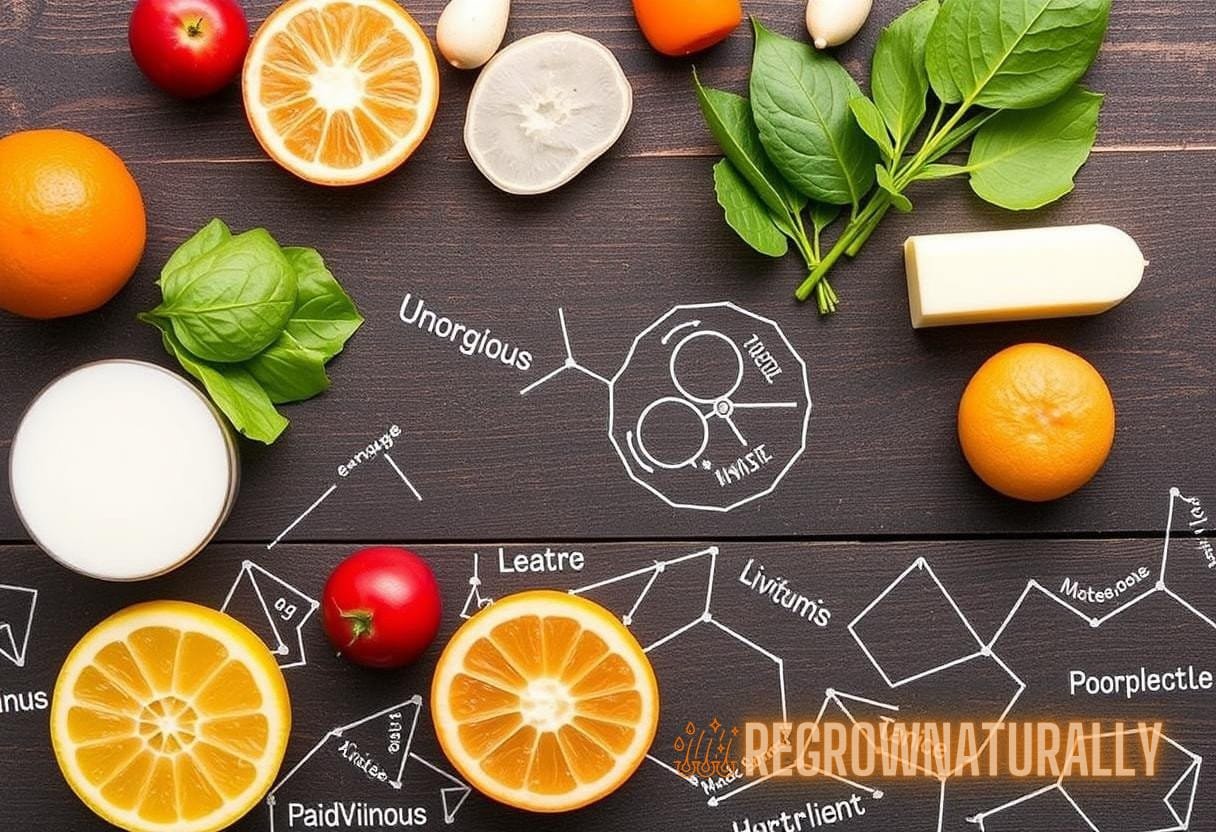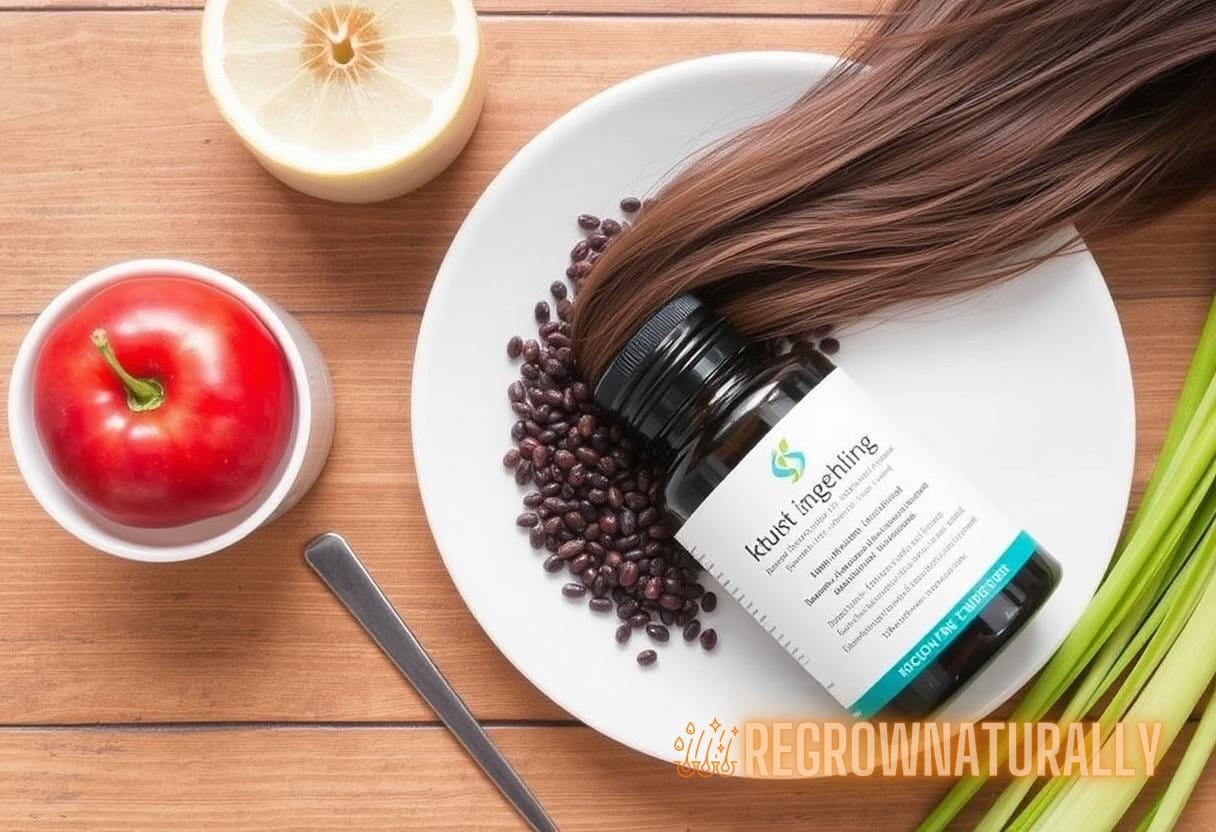The Hair-Health Diet: Integrating Food Pairing Strategies for Optimal Nutrient Absorption
Maintaining vibrant, strong hair is more than just about what you apply topically; it heavily relies on what you consume. The diet you follow can profoundly influence the health of your hair, making it essential to integrate proper nutrition into your daily routine.
The Importance of Nutrition for Hair Health
Hair, mainly composed of a protein called keratin, relies on a complex interplay of nutrients to grow strong and lustrous. Essential vitamins and minerals such as Vitamin A, Vitamin E, Biotin, Zinc, and Iron play significant roles in promoting healthy hair. A deficiency in any of these can lead to hair thinning, excessive shedding, and other hair-related concerns. According to a study published in the Journal of Dermatological Sciences, nutritional deficiencies can significantly impact hair health, highlighting the need for a well-rounded diet.
Understanding Nutrient Absorption
Nutrient absorption is the process through which the body takes in vitamins and minerals from the food we consume. However, not all foods are created equal; certain food combinations can enhance the bioavailability of these nutrients. For example, combining iron-rich foods with vitamin C can improve iron absorption significantly. This phenomenon is an essential element of hair nutrient synergy and can be leveraged to promote better hair health.
Key Nutrients for Healthy Hair
To fully embrace the hair nutrient synergy concept, it is crucial to understand the key nutrients that play a pivotal role in hair health:
- Protein: Hair is made primarily of protein, making it vital to consume adequate amounts of high-quality proteins.
- Iron: This mineral is crucial for hair growth, as it facilitates oxygen transport to hair follicles.
- Biotin: Known as Vitamin B7, biotin plays a significant role in strengthening hair and promoting growth.
- Zinc: A deficiency in zinc can lead to hair loss; it is important for tissue growth and repair.
- Omega-3 Fatty Acids: These essential fats nourish hair, keeping it hydrated and healthy.
- Vitamins A and E: Both vitamins have antioxidant properties and are important for maintaining hair health.
The Role of Food Pairing in Enhancing Nutrient Absorption
Food pairing strategies are essential for maximizing the efficacy of nutrients for improved hair health. Below are some effective combinations based on scientific principles:
- Iron + Vitamin C: Consuming iron-rich foods like spinach or lentils with vitamin C-rich foods like oranges or bell peppers can significantly enhance iron absorption. This is particularly important for vegetarian or vegan diets.
- Biotin + Healthy Fats: Biotin can be found in nuts and seeds, and pairing these with healthy fats like avocado can increase its absorption.
- Zinc + Protein: Zinc rich foods combined with protein sources—such as chicken served with quinoa—can maximize the benefits of both.
- Omega-3 + Antioxidants: Foods like salmon paired with antioxidant-rich vegetables like broccoli can boost overall nutrient absorption.
Developing a Hair-Health Diet
Now that we understand the importance of nutrient synergy and effective food pairings, let’s develop a comprehensive hair-health diet. Here are some strategies:
1. Focus on Whole Foods
Whole foods, such as fruits, vegetables, lean proteins, and whole grains, are the foundation of a healthy diet. These foods are often rich in essential nutrients that support hair health. Incorporating a variety of colors in your meals ensures a broad spectrum of nutrients.
2. Plan Balanced Meals
Every meal should contain a balance of protein, carbohydrates, and fats. For example, a meal could consist of grilled chicken breast (protein), brown rice (carbohydrates), and a side of sautéed leafy greens (vegetables) to promote hair nutrient synergy.
3. Stay Hydrated
Proper hydration is vital for maintaining glossy, healthy hair. Drinking sufficient water can help the body flush out toxins, allowing for better nutrient absorption and circulation. Aim for at least eight glasses of water a day.

4. Supplements
While it’s best to get nutrients from food, sometimes dietary supplements may be necessary to fill gaps. Consult with a healthcare professional before starting any supplement regimen, as they can guide you on safe dosages relevant to your dietary needs.
Sample Meal Plan for Hair Health
This sample one-day meal plan incorporates various foods and well-thought-out pairings that promote hair nutrient synergy:
Breakfast
- Oatmeal: Cooked with almond milk, topped with walnuts (for omega-3) and a sliced banana (rich in potassium and vitamin C).
- Green Smoothie: Spinach and kale (high in iron and vitamins), banana, and a scoop of protein powder.
Lunch
- Quinoa Salad: A mix of quinoa (protein), diced bell peppers (vitamin C), black beans (iron), and a dressing made from olive oil and lemon juice.
- Lean Protein: Grilled salmon, which is rich in omega-3 fatty acids, served with steamed broccoli (absorbing iron).
Snack
- Greek Yogurt: A serving drizzled with honey, chia seeds (omega-3), walnuts (biotin), and mixed berries (antioxidants).
Dinner
- Stir-Fried Chicken: Chicken breast stir-fried with bell peppers, broccoli (vitamins), and served on a bed of brown rice (carbohydrates).
Common Dietary Mistakes to Avoid
When focusing on hair health through diet, certain mistakes can hinder nutrient absorption. Here are a few to avoid:
- Over-cooking Vegetables: This can lead to nutrient loss. Opt for steaming or sautéing vegetables lightly.
- Ignoring Food Labels: Not all protein and vitamin supplements are created equal; it is essential to choose high-quality brands.
- Skimping on Healthy Fats: Fats are crucial for nutrient absorption; ensure you incorporate key sources like avocados, nuts, and fish.
Case Studies on Dietary Impact on Hair Health
Research and case studies highlight the vital connection between diet and hair health. In a clinical study involving women experiencing hair loss, participants who followed a nutrient-rich diet for six months noted significantly improved hair growth and strength. The key dietary adjustments included increasing protein intake, ensuring adequate Iron levels, and incorporating food pairs that promote nutrient synergy.
Additional Research Findings
Another study published in the International Journal of Trichology underscores the importance of biotin supplementation among people reported with thinning hair. Those who incorporated biotin-rich foods like eggs and nuts into their diet alongside vitamin C, noted improvements in hair growth.
Conclusion
Adopting a targeted hair-health diet that integrates strategic food pairing strategies is essential for optimizing nutrient absorption and supporting robust hair growth. By understanding and implementing hair nutrient synergy, individuals can effectively improve their hair health through scientifically supported dietary choices.



